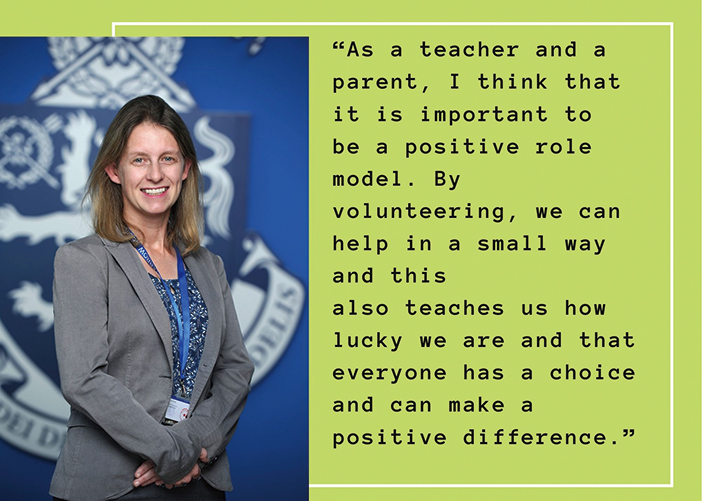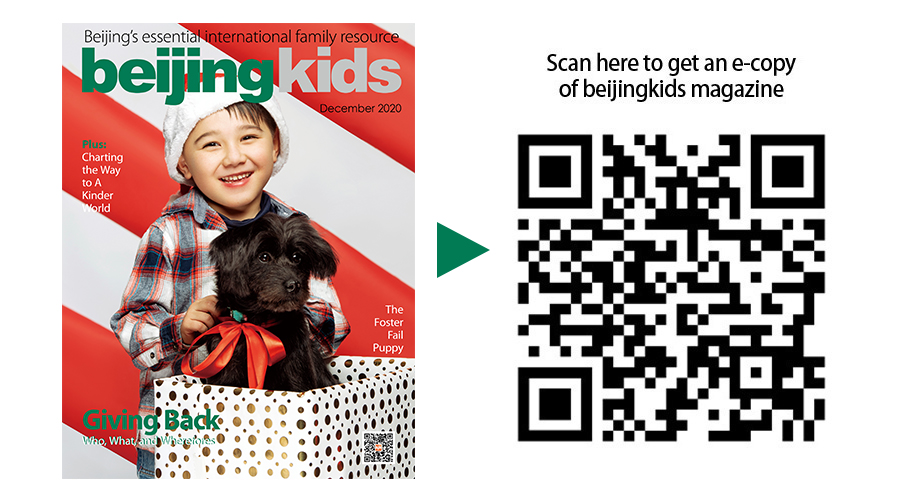Beyond raising happy, healthy, intelligent children, most parents hope for their children to become kind, generous, and giving people. Now more than ever, parents are focusing on growing their children’s emotional intelligence, on empathy to counteract the increasingly self-centric attitude to life that seems to be the norm. Empathy is evidently on the decline, according to a 2009 study of American college students in The Atlantic. Between 1979 and 2009, students grew far less likely to be concerned by the situation of those who were less fortunate than them, and even worse, appeared to feel less bothered by seeing others being treated unfairly.
 Not All Heroes Wear Capes!
Not All Heroes Wear Capes!
This is where Sharon Ringrose, a Geography teacher at Harrow Beijing (HBJ) steps in. After holding this position for eight years, Ringrose knows not only about the physical geography of Beijing, but also the philanthropic lay of the land, and strives to guide her students through it. “I have always loved Geography and feel that it is important to teach children about the world around them,” says Ringrose. Recalling my own time in school, I remember Geography as being one of those polarizing subjects, right up there with the hard sciences. One either adored it or abhorred it. So how does a teacher deal with this possible polarizing effect of the subject about which she is passionate? “I try to make learning fun and lessons interesting,” is Ringrose’s response, also adding, “If a teacher is enthusiastic about what they are teaching then it is easier to engage students and get them to work hard.”
 In A World Of Our Own
In A World Of Our Own
As foreigners living in Beijing, it is easy to exist in an expat echo chamber, insulated from the world beyond our social circles. This also goes for children from international families. Granted, they attend culturally diverse schools, but their potential social status in a country like China might mean they are isolated from those who are not as fortunate as they are. So how does one rectify such a situation? Ringrose has devised a unique way to combine charity and school resources. As she explains, “I have volunteered at Alenah’s Home [a home for orphans with special needs]for seven years. This has included taking students to the home every week and running a swimming program on Saturdays in the Harrow swimming pool. Going swimming was often the highlight of the week for the children.”
 A Little Goes a Long Way
A Little Goes a Long Way
As a teacher and parent herself, Ringrose feels doubly obliged to encourage her students to not only start but continue sustainable charitable initiatives. “I also encouraged my students to organize and run fundraising initiatives such as making and selling hot chocolates and cookies to raise money for local charities,” explains Ringrose. But beyond extending generosity to those outside of their classrooms, Ringrose also encourages kindness in her classroom. As Ringrose explains, “I encourage students to be kind to each other; this might be through buddying with new students or group work.“
A Future of Kindness and Geography in Beijing
Ringrose admits to having utterly fallen in love with Beijing. “I love living in Beijing, there are always new restaurants to go to and places to see. I love the fact that we are close to the mountains for skiing in the winter and the fact that there is so much history to explore within the city,” says Ringrose, revealing her affinity for history as well. What the future holds for Ringrose in Beijing, only time will tell, but she hopes to continue doing what she loves – teaching Geography and helping create a kinder, more compassionate generation of learners. As she puts it, “Kindness inspires kindness. In the last eight years, I have worked with many wonderful students who have inspired me to be kinder and more patient.”
Learn More about Alenah’s Home and how to support their mission:
Website: www.childrenshope.net
Ph: 6431 8202
Email: chif@childrenshope.org.cn
KEEP READING: Best Buddies with Zhichao: Harrow Students Learn from Children With Differences
Photos: Courtesy of Harrow Beijing (HBJ)
 This article appeared in the beijingkids 2020 December issue
This article appeared in the beijingkids 2020 December issue




